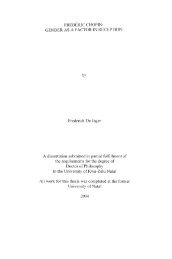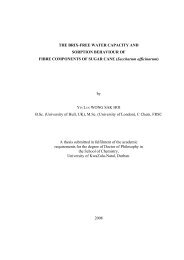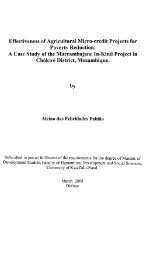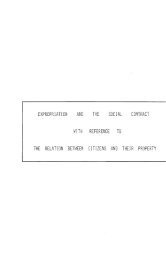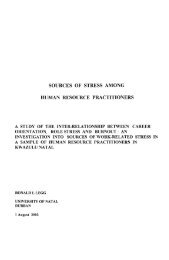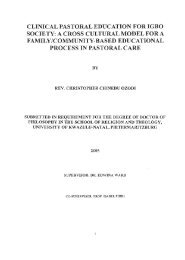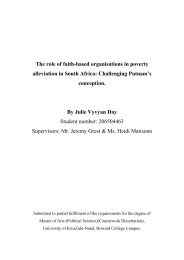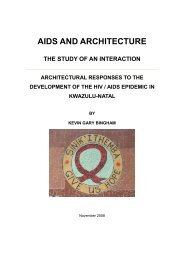View/Open - ResearchSpace - University of KwaZulu-Natal
View/Open - ResearchSpace - University of KwaZulu-Natal
View/Open - ResearchSpace - University of KwaZulu-Natal
Create successful ePaper yourself
Turn your PDF publications into a flip-book with our unique Google optimized e-Paper software.
Figure 2.2 Ecological systems theory as applied to this study sourced from<br />
(Bromfenbrenner, 1974)<br />
Taking this into consideration, the working definition for ecological systems theory for this<br />
study is, the study <strong>of</strong> how human beings interact with their complex environment either<br />
affecting each other negatively or positively. This theory is based on the assumption that,<br />
when a person or group is connected and engaged in a supportive environment, the<br />
functioning also improves (Davis, 2009). It important to note that, the ecological systems<br />
theory in this study is appropriate to describe the relationship between the HBCOs’ regulation<br />
and the outcome <strong>of</strong> the services provided by their workers. This means that, in home-based<br />
care organizations and volunteer caregivers providing care to patients will perform their<br />
duties effectively if necessary materials are provided hence improving their functioning.<br />
2.9.1 Levels <strong>of</strong> the ecological systems theory as applied to this study<br />
The ecological systems theory has four levels <strong>of</strong> influence and these are micro-system, meso-<br />
system, exo-system and the macro-system (Wilder, 2009).<br />
25



